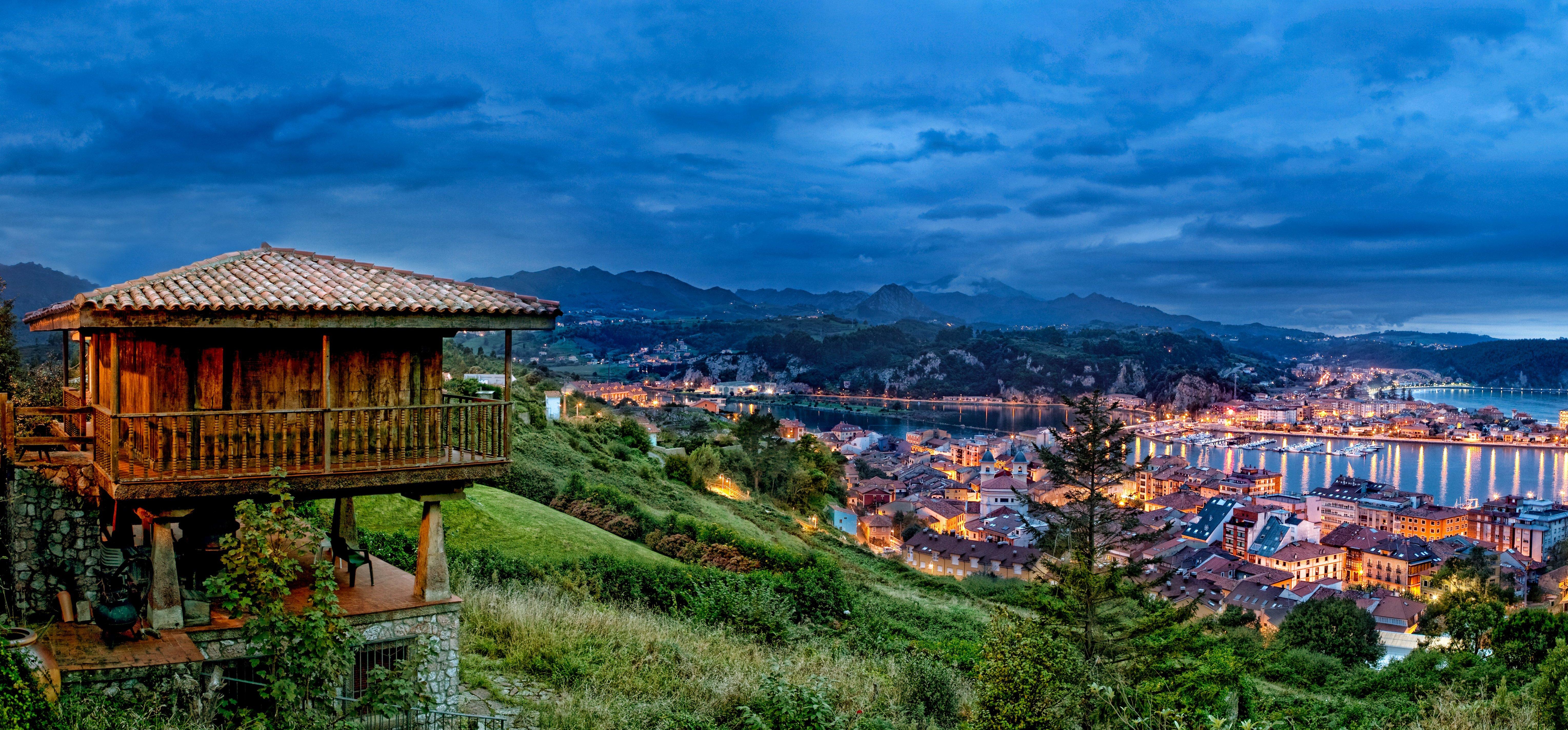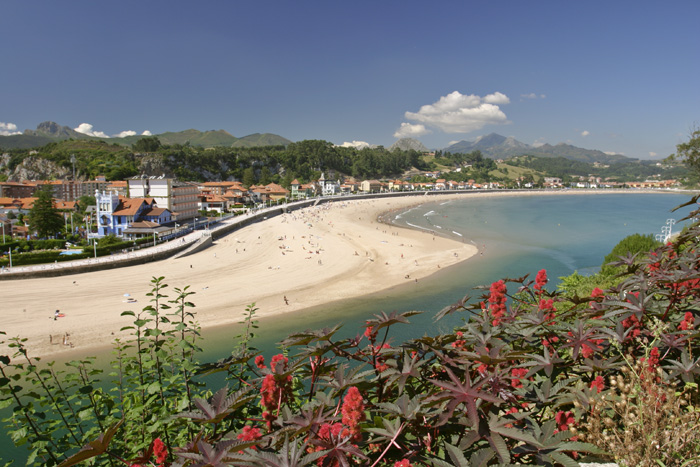The coastline is a common good. That is why, from the City Council, we want to involve all users of this project, promoting their collaboration and seeking the satisfaction of all those who enjoy the Santa Marina beach, in Ribadesella.
In this line of accessibility, environmental protection and quality, the principles that govern the management of Santa Marina beach are:
- The identification and evaluation of environmental impacts derived from the management of the beaches, to reduce or eliminate them as far as possible, in order to prevent environmental pollution and thus achieve continuous improvement of the Integrated Management System.
- Compliance with current legislation and regulations applicable to the integral management of the Ribadesella coastline, the quality of its waters and the service provided to users.
- Establish objectives and provide the necessary resources, which will be reviewed and updated periodically by the competent management to ensure continuous improvemnet of its environmental behaviour and pollution prevention.
- Seek to save natural resources through the search for the quality obtained in the processes carried out and minimizing the use of these resources using eco-efficiency methods.
- The implementation of training and environmental education plans, with the aim of sensitizing both, employees and users of the beach themselves in the protection of the coastal environment.
- To spare no effort in meeting the needs and expectations of the users of our beaches in order to continuously increase their satisfaction.
- And, finally, to adopt the commitment of the continuous improvement of the Management System.
This Policy will apply to all activities, products and services of Santa Marina Beach in normal, abnormal and emergency situations.
Bathing season: from June 8 to September 15 2024.
Period of maximum influx: from July 15 to August 15.
Services during the summer season:
- 17 showers
- 8 footbath
- 10 drinking fountains (2 accessible)
- 1 dog fountain
- 4 toilets
- 4 toilets adapted for people with reduced mobility
- 1 rescue and first aid station
- 9 bike parking spots
- 14 litter bins on the walk and 10 on the sand
- 3 dog waste bins
- Parking area
- Accessible parking
- Accessible point for people with disabilities
- 3 main accesses
- 3 signposted information points
- Bathing area
- Public address system
- Complaints and suggestion collection system: You can submit your complaints, claims or suggestions about beach services, through the satisfaction survey, in the Ribadesella Town Hall Entry Register and in the Complaint Form that you will find at the rescue station and in the beach bars of Santa Marina.
- Identification system for lost children: beach users can collect an identification bracelet at the rescue station from 11.30 a.m. to 7.30 p.m.
- Ecological ashtrays
- Baby changing station
- Lifeguard Service: from June 11 to September 18 from 11.30 a.m. to 7.30 p.m.
- 3 recycling points
- Assisted bathing service with amphibious chair and adapted crutches. Hours from 11:30 a.m. to 7:30 p.m.
- 3 beach bars. Hours: every day, at least, from 10:30 a.m. to 9 p.m.
- Beach library: from July 1 to August 31: Tuesday to Sunday from 4 to 8 p.m.
Objectives 2024
- Decrease the number of complainst, improve the quality of the sand, get at least 120 satisfaction surveys and get a 4.5 in overall user satisfaction.
Compliance Objectives in 2023
- Decrease the number of complainst: Not got
- Improve the quality of the sand: Not got
- Get at least 120 satisfaction surveys: Not got
- Get a 4.5 in overall user satisfaction: Not got
Results of the indicators established on environmental and health risks 2023
- Lifegaurd service actions: 402
- Scorpion fish stings: 257
- Wounds and contusions: 98
- Bathing water quality: Regular
- Sand quality: Good
- Microbiological analysis of beach bars: Normal
- Microbiological analysis of showers: Good
Indicators established for the 2024 season
- Showers, footbath, toilets, drinking fountains, accesses and selective recycling points in good conditions.
- Quality of bathing water and sand, water temperature and number of days with a red flag.
- Microbiological analyses of beach bars and showers.
- Number of user satisfaction surveys and level of satisfaction with the lifeguard service, beach cleaning and general satisfaction.
- Users complaints regarding equipment of beach, sand, water...
- Lifeguard service actions, emergency situations involving transfers, rescues, scorpions fish stings, wounds and bruises and drills performed.
- Beach and assisted bathing users.
- Number of sports and leisure activities.
- Accessibility: satisfaction of accesses, toilets, parking and assisted bathing service.
- Environmental: wastewater and oil spills, contamination of the dry surface, consumption of natural resources: water and light.
Prevention of health and environmental risks
Scorpion fish stings:
Scorpion fish, also known as spider fish, is a marine animal that lives half-buried in a sandy or muddy bottom. Its cryptic colour and the fact that it is buried in the sand leaving only the eyes visible, makes it difficult to see it to the naked eye. The injuries that it causes in humans generally occur when treading them without realizing it (accidental contact), nailing in the foot the spine in which the fish has a poison that rarely generates severe complications, except swelling at the site of the sting, dizziness, nausea, vomiting or irritation. After the bite, you feel a very intense pain that tends to increase progressively.
Preventive actions or information that we can consider when bathing on the beach to avoid as far as possible the sting of this fish:
- They are in very shallow areas, sandy bottoms and when the sea is calm.
- Do not ignore warnings of lifeguards at the beach.
- Look at the seabed and look right where you step, although as we said it is difficult to see...
- Avoid trying to touch or handle marine animals unnecessarily.
- Wear protective footwear while walking on beach sand.
- Watch especially children, as they bathe in areas where they barely cover the water.
If you feel very intense pain, you may have been bitten by a scorpion fish. What do you have to do then?
- Get to the rescue station as soon as possible. There they will clean and remove the spines that can be observed with the naked eye. Heat will be applied to the affected area with hoy water (45ºC- 50ºC) for at least half an hour. The poison is inactivated by the heat.
- Do not apply cold, do not do turnstiles, or incision and suction of the wound to try to extract the poison. It could increase the risk and subsequent vascular complications (tissue necrosis, gangrene) and infections.
- Take a painkiller.
Wounds and bruises due to the presence of stones and/or rocks
On the Santa Marina beach, as in many other beaches in the area, the rides drag and deposit stones both in the sand and in the bathing area. At the web end of the beach there are also larger rocks. The stones are usually on the surface, we can see them, but there are times that they can also be buried. These stones and rocks produce quite a few incidents among the bathers by cuts and bruises.
To avoid getting hurt you can take some precautions:
- Do not run through the areas of the beach where there are rocks.
- When swimming in shallow water, watch the bottom and walk with caution, avoiding running or swimming where it does not cover enough.
- If you are going to walk around the area where there are stones wear flip-flops or suitable footwear.
- In case of damage and need health care, go to the rescue station, there will be attended and receive the assistance you need.
Best environmental practices for Santa Marina beach
Santa Marina beach is one of the most crowded of the area. The large number of users, as well as the services and activities developed in it, mean that we must guarantee environmental control and take preventive measures, informing users about the correct practices that we must carry out to conserve our environment.
For this reason, we thank you to follow the following recommendations when visiting the beach:
- Do not throw waste in the sand or sea, deposit it in the litter bins.
- Use the selective recycling points.
- Use ecological ashtrays.
- Respect the flora and fauna of the sea.
- Respect the bathing area.
- Respect the rest of others.
- Do not waste water in showers, foot wash stations and/or fountains. Use them only for the time needed.
- Do not use soaps, detergents or shampoos in the showers.
- Follow the instructions of the lifeguard service.
- Respect the rules and prohibition signs.
You can consult general information on the quality of bathing water on the website of the National Bathing Water Information System of the Ministerio de Sanidad, Consumo y Bienestar Social.






